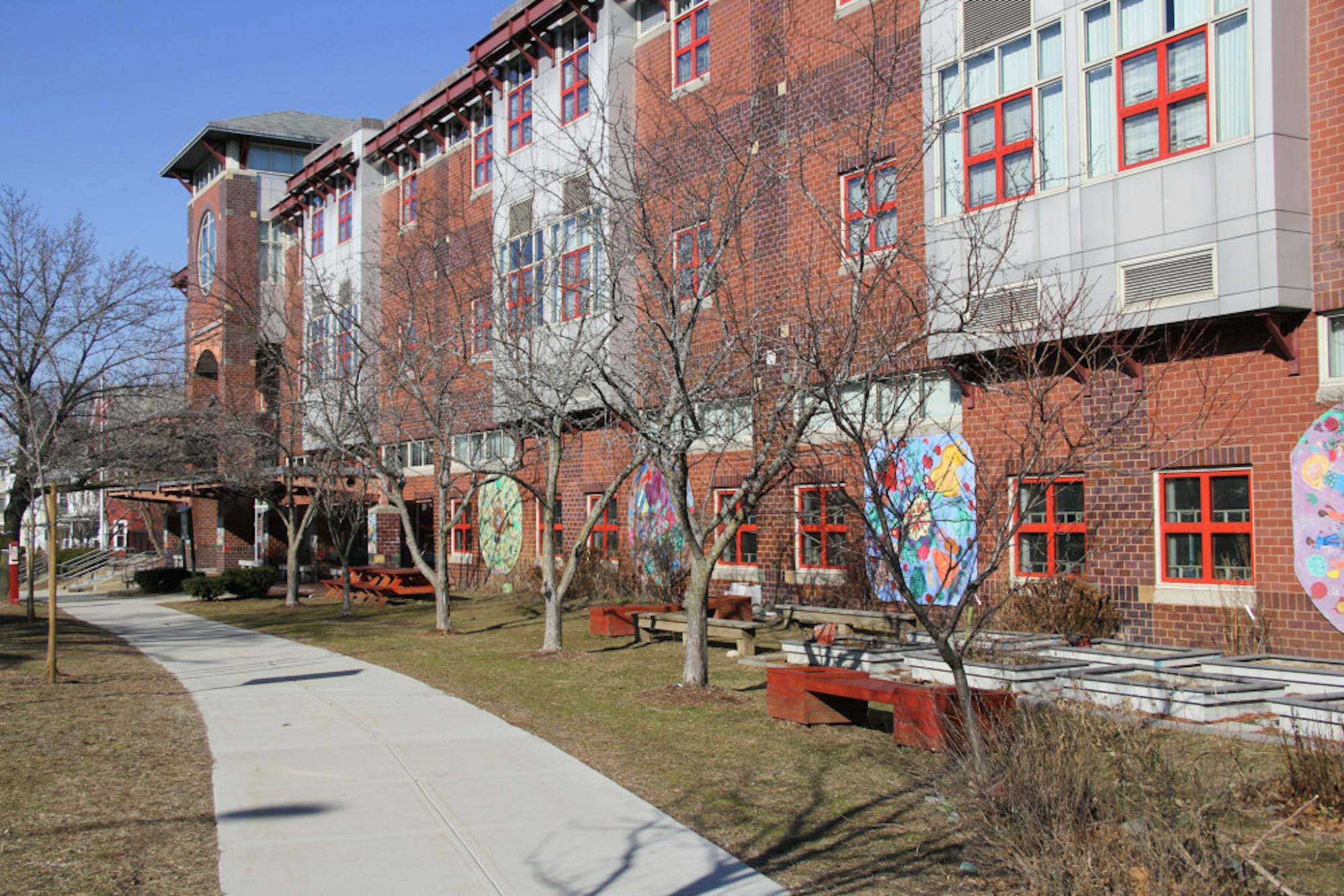More than 10 public school districts in the Greater Boston area, including Somerville Public Schools, either called snow days or had delayed openings during the week of Jan. 3 in order to catch up on COVID-19 testing and personal protective equipment (PPE) distribution.
As COVID-19 cases surged due to the high transmissibility of the omicron variant, many districts found it difficult to manage their high rates of infection and sought to suspend in-person classes in order to test teachers for the virus and give them a supply of PPE. However, because the Massachusetts Department of Elementary and Secondary Education (DESE) continues to prohibit schools from conducting remote learning, the only way that schools are allowed to cancel in-person instruction is by calling a snow day.
Massachusetts schools can apply for a waiver from the state to conduct remote learning that counts toward students' required learning hours. In November 2021, DESE denied a Jamaica Plain school's request for a remote learning waiver after the school reported nearly four dozen COVID-19 cases over the course of approximately three weeks.
DESE Commissioner Jeffrey Riley defended the denial, saying that "remote learning will not fully meet the academic and social emotional needs of our students."
School districts around the state differed in their approaches to the variant. Medford Public Schools held classes as originally scheduled on the morning of Jan. 3, whereas Somerville Public Schoolsused a two-hour delay. Nearby, Cambridgecalled snow days on both Jan. 3 and Jan. 4 despite clear weather on both days.
Massachusetts public schools are not allowed to hold virtual classes on snow days, as this would be considered a violation of DESE’s ban on remote learning. As a result, in the districts that closed their school buildings, not even virtual instruction could take place.
David Murphy, assistant superintendent of finance and operations for Medford Public Schools, explained that while Medford schools have seen an increase in COVID-19 cases, the district was able to preempt major staffing shortages during the week of Jan. 3, and therefore proceeded with classes as planned.
“We definitely had staffing issues. We had reached out to some substitutes ahead of time to try to staff each school … so that was sort of a proactive step that we took,” Murphy said in an interview with the Daily. “While we’re definitely short-staffed and had some challenges, we were able to operate the buildings and make good on our commitment to the families of Medford to keep kids in school, which is something that we think is really important for their health.”
Avery Hines, supervisor of nurses at Medford Public Schools, outlined some of the changes her department has made to COVID-19 policy since winter break.
“Typically we were calling home for positives, but that was when we didn’t have as many positives as we have had with omicron,” Hines said in an interview with the Daily. “[Now,] instead of calling home once we get the results, we send emails out … if we tried to call everyone before the school day, we wouldn’t reach anyone, and we’d have positive kids in the building.”
Meanwhile, Susana Hernandez Morgan, chief communications and development officer for Somerville Public Schools, explained that her district found it necessary to delay classes by two hours on Jan. 3 in order to keep track of COVID-19 infections.
“We decided to institute a two-hour delayed start of classes for students the first day back from winter break to ensure that all staff had access to rapid testing before students arrived, that school principals and central office staff could adjust school staffing based on any positive tests reported that morning, and that KN95 masks could be distributed to all staff prior to students’ arrival,” Morgan wrote in an email to the Daily.
Hernandez Morgan added that Somerville Public Schools’ COVID-19 precautions have helped keep case numbers relatively low.
“We have implemented a strong and comprehensive COVID safety plan to minimize the presence of COVID in our schools. [Somerville Public Schools'] case counts and positivity rates have been significantly below community levels in Somerville and throughout the Commonwealth,” Morgan wrote. “All students received a rapid test kit that contained 2 tests prior to the start of the winter break … all staff rapid-tested prior to students’ arrival to school on [Jan. 3] … all staff are being provided with KN95 masks to be used at school, regardless of vaccination status.”
According to Murphy and Hines, even though the vast majority of students, parents and faculty continue to comply with COVID-19 guidelines, fatigue is beginning to set in.
“We’re [at] this point where we need to start to look at the big picture and where we want to see the future going, especially in regards to students being able to have some form of functionality in education,”Hines said. “How can we best do that in a supportive environment where we’re still cognizant of COVID but not focused on COVID?”
Murphy shared some of the same sentiments.
“I think we’ve gone from a period of hopefulness with respect to reestablishing normalcy to a period of desperation to reestablish normalcy," Murphy said. “While we understand that there’s a responsibility to continue to be vigilant against the spread of COVID-19, I think there is also a growing realization in Medford and elsewhere that this is a virus that ultimately will be endemic and that we will live with at least for the foreseeable future, if not for the rest of our lives."
"We’re focused on making sure that … we're continuing to advance the educational mission of the district despite this added challenge,” Murphy said.






